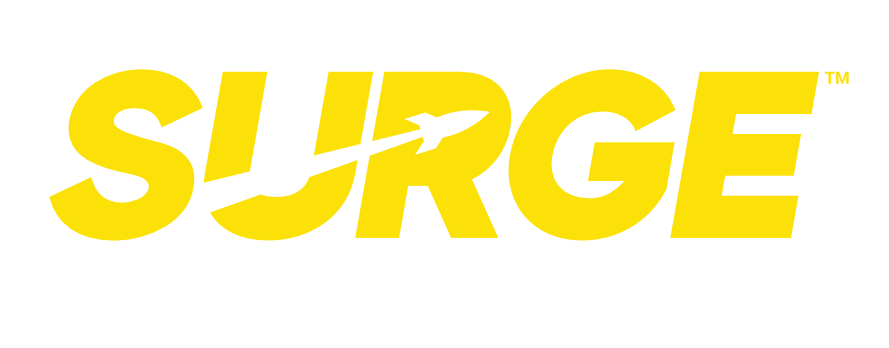7 Common Legal Mistakes Small Businesses Make (And How to Avoid Them)
Running a small business involves juggling many responsibilities. Legal matters often take a backseat to daily operations, but this oversight can lead to serious problems down the road.
Many small business owners lack legal expertise, which makes them vulnerable to costly mistakes that could have been easily avoided.
From choosing the wrong business structure to neglecting proper contracts, these errors can threaten a company’s stability and growth potential.
Recognizing these issues early allows entrepreneurs to take preventative measures rather than deal with expensive consequences later.
1) Neglecting to Incorporate Formally
Many small business owners operate without formally establishing a legal business structure. This oversight can expose entrepreneurs to personal liability for business debts and legal issues.
When you operate as a sole proprietorship by default, your assets aren’t protected from business liabilities. This means your home, car, and savings could be at risk if your business faces lawsuits or debt collection.
Formal incorporation provides a legal separation between your personal finances and your business activities. This separation creates what legal experts call a “corporate veil” that shields personal assets from business claims.
Business owners can choose from several incorporation options, including Limited Liability Companies (LLCs), S-corporations, and C-corporations. Each structure offers different advantages regarding taxes, operations, and legal protections.
The incorporation process may seem complex, but the benefits far outweigh the initial paperwork and fees. Many companies sell industry-specific legal templates that can simplify the process for a reasonable fee.
Consulting with a business attorney can help determine the most appropriate structure for specific business needs. This investment in proper legal formation helps protect businesses and ensures long-term success.
2) Overlooking Intellectual Property Protection
Intellectual property (IP), including patents, trademarks, and copyrights, is a valuable asset for businesses. It protects unique ideas, brands, and creative works that set your business apart from competitors.
Many small business owners make the mistake of not protecting their intellectual property early enough. This delay can lead to significant problems, including costly legal disputes.
One common error is failing to conduct proper research before launching a business or product. Entrepreneurs sometimes skip checking if their business name, logo, or product design might infringe on existing IP rights.
Thorough research is essential to avoid potential legal challenges later.
Using weak trademarks is another pitfall that leaves businesses vulnerable. A strong, distinctive mark provides better protection than generic or descriptive ones.
Neglecting international protection can also create problems for businesses planning to expand globally. IP rights are territorial, meaning protection in one country doesn’t automatically extend to others.
Small businesses should work with an IP attorney to develop a comprehensive protection strategy to avoid these issues. Regular IP audits help identify what needs protection and ensure all necessary registrations are current.
Secure your business’s future with Surge Business Law’s Incorporation Services. Protect your assets and build a solid legal foundation today. Contact us to get started!
3) Failing to Draft Clear Contracts
Small business owners often make critical mistakes when drafting contracts, leading to costly disputes and legal issues. Unclear terms and ambiguous language create confusion about each party’s obligations and rights.
One common pitfall is failing to set clear guidelines for how and when work should be completed. This includes not establishing specific timeframes or payment terms or defining the scope of work precisely.
Many businesses also neglect to include provisions for potential changes or additional work. Without clearly defined procedures for revisions or modifications, disputes about extra costs will likely occur.
Contract language should be specific and concrete rather than vague. Phrases like “reasonable time” or “satisfactory quality” can be interpreted differently by each party, creating room for disagreement.
Business owners should ensure their contracts establish clear and concise terms that all parties understand. This includes detailed descriptions of deliverables, payment schedules, and termination conditions.
To avoid these issues, businesses should consult legal professionals specializing in contract law. A well-drafted contract protects all parties and helps prevent costly legal disputes that can damage both finances and business relationships.
4) Ignoring Employment Law Requirements
Small business owners often find employment laws complex and challenging to navigate. This complexity can lead to costly mistakes when requirements are overlooked or misunderstood.
One common error is misclassifying employees as independent contractors, which can result in significant penalties. This mistake costs American workers approximately $50 billion annually in unpaid contributions like unemployment insurance and Social Security taxes.
Another frequent issue is failing to comply with wage and hour laws. To avoid legal troubles, small businesses must understand and follow minimum wage requirements and overtime pay regulations.
To avoid these pitfalls, business owners should educate themselves on relevant employment laws that apply to their specific industry and location. This includes understanding proper employee classification, wage requirements, and workplace safety regulations.
Staying informed about changes to employment laws is crucial for ongoing compliance. Laws evolve regularly, and ignorance of these changes isn’t a valid defense against violations.
Working with an employment law attorney to review company policies can provide valuable protection. This professional guidance helps ensure that all employment practices comply with current regulations.
Don’t leave your business vulnerable! Surge Business Law offers Contract Drafting services to safeguard your interests and avoid costly disputes. Schedule a consultation now!
5) Not Keeping Up with Regulatory Changes
Laws and regulations affecting small businesses change frequently. Many business owners make the mistake of not staying current with these changes, which can lead to serious compliance issues.
According to statistics, small companies spend up to 80 percent more on regulatory compliance than larger enterprises.
Ignorance of new laws is not a valid defense. Business owners who fail to keep up with regulatory changes often face unexpected fines, penalties, and legal complications that could have been avoided with proper attention.
This is especially true for employment-related regulations, taxes, data privacy, and industry-specific requirements. These areas undergo frequent updates that can significantly impact a business’s ability to operate.
To avoid this mistake, business owners should establish a system for tracking regulatory changes in their industry. This might include subscribing to industry newsletters, joining professional associations, or working with legal professionals.
Consulting with a legal professional specializing in small business compliance can provide valuable guidance.
They can help identify which regulations apply to the specific business and develop strategies to maintain compliance.
Setting aside quarterly time to review regulatory changes can prevent costly oversights and ensure the business complies with all applicable laws.
6) Operating Without Necessary Insurance
Many small business owners underestimate the importance of proper insurance coverage. They often consider insurance an unnecessary expense rather than a crucial protection. This mindset can lead to devastating financial consequences if something goes wrong.
Every business faces unique risks that require specific insurance protections. General liability insurance protects against customer injuries, property damage, and advertising claims. Without it, a simple accident could lead to financial losses or even closure.
Professional liability insurance (errors and omissions) is essential for service-based businesses. It covers claims of negligence or failure to perform professional duties properly.
Property insurance protects physical assets, while business interruption insurance helps cover lost income during unexpected closures. Workers’ compensation is legally required in most states for businesses with employees.
Business owners should consult with an insurance professional to identify coverage gaps. Regular insurance reviews ensure that protection keeps pace with business growth.
An expert can help create a comprehensive plan that protects against industry-specific risks.
The cost of proper insurance is minimal compared to the potential financial impact of being uninsured during a crisis.
7) Choosing an Inappropriate Business Structure
Selecting the right business structure is one of the most crucial decisions entrepreneurs make when starting a business is selecting the right business structure. This choice impacts everything from taxes and liability to operational flexibility and funding options.
Many small business owners default to a sole proprietorship for simplicity. However, this structure does not offer a legal distinction between personal and business assets, leaving owners personally vulnerable to business debts and lawsuits.
Alternatively, some businesses incorporate prematurely, creating unnecessary paperwork and expenses. Each structure has advantages and disadvantages that must align with the company’s needs and goals.
Limited Liability Companies (LLCs) offer liability protection with less formality than corporations. Partnerships require clear agreements to prevent future disputes. S-Corporations can provide tax benefits for qualifying businesses.
Business owners should consider consulting with legal professionals before making this decision. As the business grows and evolves, its structure may need to change accordingly.
Choosing the wrong business structure can lead to paying higher taxes, facing unexpected personal liability, or dealing with administrative burdens that distract from core business operations.
Ready to protect your intellectual property? Surge Business Law’s Trademark Registration services can help secure your brand and prevent competitors from taking advantage. Reach out today!
Frequently Asked Questions
What are the legal implications of not properly classifying employees and independent contractors?
Misclassifying workers can trigger substantial penalties, including back taxes, unpaid benefits, and wage differences. The IRS and Department of Labor may audit your business, uncovering broader compliance issues.
How can inadequate shareholder agreements affect a small business?
Poor shareholder agreements can cause decision-making deadlocks, disputes over company direction, and complex exit strategies. This may lead to costly litigation and increased personal liability for business owners.
What are the risks associated with neglecting proper license and permit requirements?
Operating without the necessary licenses and permits can result in forced closures, heavy fines, and even the need to return revenue earned during unlicensed operations. It may also invalidate customer contracts.
How does failing to protect intellectual property impact small business owners?
Competitors can exploit your creations without legal protection for your intellectual property through trademarks, patents, or copyrights. This oversight can reduce your business’s competitive advantage and licensing revenue.
Why is it essential to have clear terms and conditions stated in business contracts?
Clear contracts prevent disputes over deliverables, payment schedules, and timelines. They reduce misunderstandings, protect against scope creep, and help ensure dispute enforceability.
What are the consequences of not understanding employment laws comprehensively?
Ignorance of employment laws can lead to discrimination claims, wage and hour violations, and costly lawsuits. Inadequate policies and training increase legal risks and may damage your business’s reputation.
What steps can small business owners take to ensure legal and operational compliance?
Business owners should regularly review federal and state regulations, consult legal experts, update internal policies and contracts, and implement comprehensive training. These steps help mitigate legal risks and ensure smooth operations.


